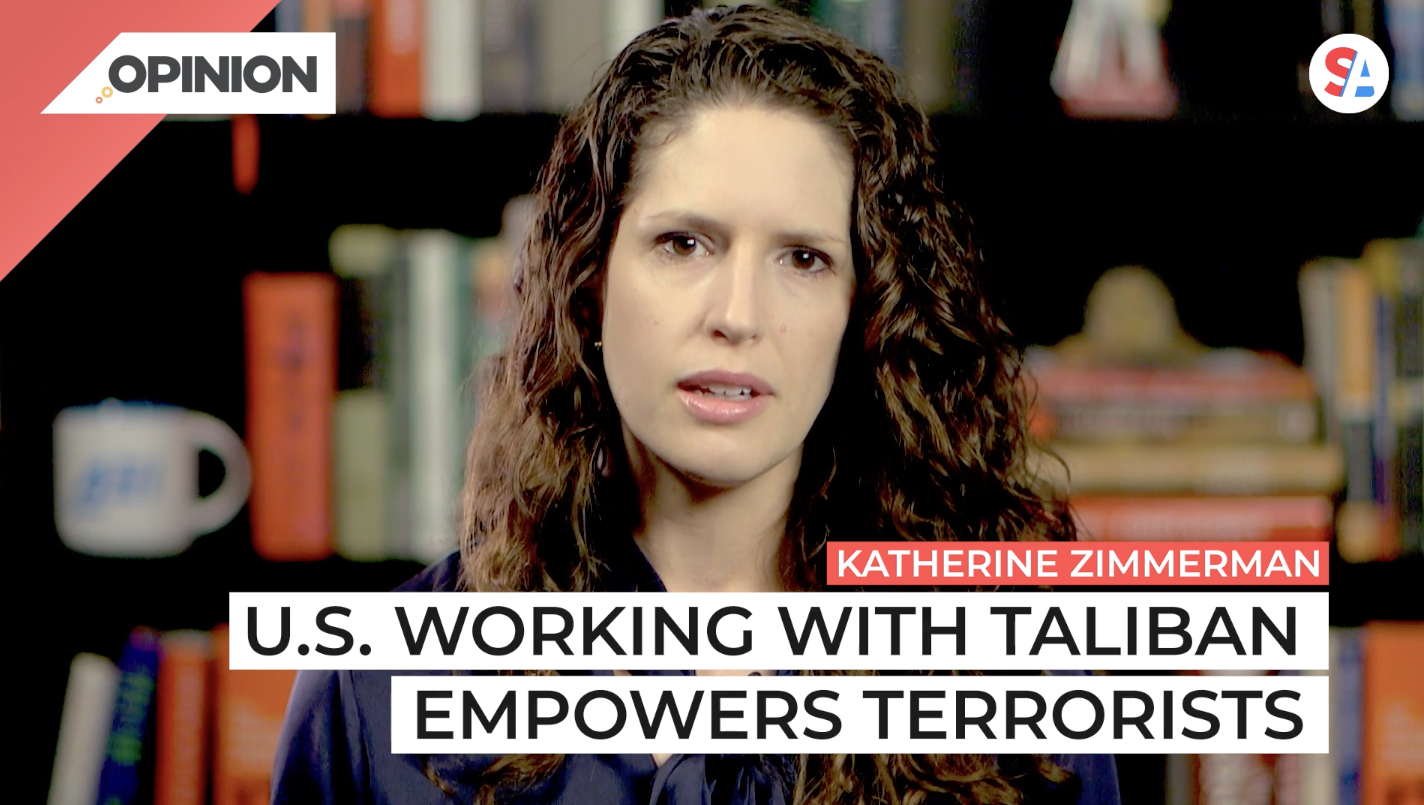
Commentary
-
Our commentary partners will help you reach your own conclusions on complex topics.
The United States cannot turn its back on the Afghan people and the escalating humanitarian crisis that they face, but this does not mean that it should work with the new Taliban administration that has come to govern.
Accepting the Taliban as the legitimate authority in Afghanistan erases the Taliban’s brutal history and the role that top Taliban officials have played in supporting al Qaeda.
Such a move sets a dangerous precedent, especially as other terrorist groups watch the international community’s actions in Afghanistan and prepare to follow in the Taliban’s footsteps.
Those who argue for the United States to let bygones be bygones and work with the Taliban today cite America’s moral responsibility to help Afghanistan and its people.
The United States had invested twenty years in Afghanistan, and foreign aid largely propped up the government before the calamitous US withdrawal.
Without assistance, Afghanistan’s public services now run by the Taliban will almost certainly continue to collapse.
The humanitarian situation is one of the worst in the world and still deteriorating. Half of the population – about 22.8 million people – face severe food shortages this winter. Drought, economic crisis, and conflict have severely affected food production in the country.
The Afghanistan economy has entirely collapsed due to steps the West took in the immediate aftermath of the Taliban’s rise to power and ongoing sanctions.
After the Taliban takeover of Afghanistan, the West cut off almost all foreign assistance and froze billions of dollars of Afghanistan’s assets. US sanctions imposed on the Taliban since 1999 remain in place in addition to the slew of sanctions the US has imposed against individual leaders connected to terrorism in the two decades since 9/11.
Sanctions have had a chilling effect on aid organizations’ activities in Afghanistan, complicating their operations and making financial institutions unwilling to work in the country for fear of missteps.
In December, the Biden administration issued additional carve outs for humanitarian activities to better enable emergency relief operations in Afghanistan. The administration just announced another $308 million in humanitarian aid for Afghanistan, to flow through humanitarian organizations and not the Taliban administration to those in need.
The Biden administration should not cave to pressure to work directly with the Taliban administration. High-ranking officials within the Taliban government are under US terrorism sanctions, including the interior minister Sirajuddin Haqqani and his uncle, Khalil, who is the minister of refugees. The Haqqanis are not just Afghan insurgents; they have facilitated relations with al Qaeda and support global jihad. Their continued participation in any Afghan administration, along with that of other US-sanctioned individuals, is part of the problem with the Taliban administration.
Working directly with the Taliban will almost certainly strengthen the group’s hold on power and assumes the Taliban has the Afghan people’s best interests at heart.
Moreover, to accept the presence of designated terrorists in the Afghan government undermines the impact of US counterterrorism sanctions and lays a path for others to follow.
Al Qaeda-linked groups in Syria, the Sahel, and Somalia already seek to emulate the Taliban’s success.
In Syria, leaders of the militant group Hayat Tahrir al Sham have exchanged battlefield fatigues for business suits. Hayat Tahrir al Sham publicly broke ties with al Qaeda in 2016 but has imposed Islamist governance across parts of northwest Syria. Its role as the local powerbroker has led to calls for the US to lift the terrorist designation from the organization.
In the Sahel, the al Qaeda-linked group has actively sought to negotiate a political settlement akin to that of the Taliban’s in Afghanistan, arguing that its terror attacks have never been on Western soil.
In Somalia, similar lines of argument have called for engagement with al Shabaab, even though it is still part of al Qaeda.
Working with the Taliban might seem like the best way to help the Afghan people in this time of crisis. But it will only serve to strengthen a repressive, Islamist regime, and hand victory to the terrorists. The United States should continue to provide humanitarian relief to Afghanistan—just not through the Taliban.
-
US should help Yemen fight Houthis
Recent Houthi attacks on U.S. Navy vessels and U.S. counter-strikes against Houthi targets in Yemen have triggered a foreign policy debate on how the United States should proceed and on whether a larger U.S.-Houthi conflict might be imminent. Houthi leaders say that their aim is to impede Israeli trade and shipping, even though many of…
-
US must respond to threat from Iran-backed Houthis
Last month, the commander of Iran’s Islamic Revolutionary Guards Corps Quds Force told the head of Hamas’ military wing that Iran will do “whatever it takes” to support them in its war with Israel. Meanwhile, the Iranian-backed Houthi rebels in Yemen intensified attacks on commercial ships in the Red Sea, prompting U.S. warships to shoot…
-
US, Israeli counterterrorism policy must adjust after Hamas attack
Revered Israeli and U.S. intelligence agencies failed to detect the signs of an imminent Hamas attack on Israeli villages near the Gaza Strip. The surprise attack was planned within Hamas’s military wing and highlights both Israel’s intelligence blind spots as well as Hamas’s use of “old-school techniques” like in-person communication. Straight Arrow News contributor Katherine…
-
US must sustain pressure against al-Qaeda
The United States and its allies have severely reduced the capacity for al-Qaeda, the terrorist group behind the 9/11 attacks, to organize or carry out any large-scale terrorist attacks against the U.S. homeland. Recent U.S. intelligence assessments suggest al-Qaeda is weaker than ever in Afghanistan, while experts and international observers continue to warn that al-Qaeda is…
-
African coups demand US policy changes
A string of recent military coups toppling governments in the African Sahel, from Guinea to Sudan, poses new risks and challenges to the United States. France, formerly a key ally in African security affairs, has also massively reduced its forces on the continent, at times being chased out by pro-Moscow forces. Straight Arrow News contributor…
Latest Opinions
-
 U.S. Department of Defense
U.S. Department of Defense
Congress still trying to figure out how to reduce wasteful military spending
-
 DVIDS
DVIDS
US Navy, Air Force making waves with new weapons at RIMPAC
-
 Getty Images
Getty Images
Israeli PM Netanyahu meets with Trump at Mar-a-Lago
-
 Getty Images
Getty Images
Growing US nuclear power resurgence reaches the nation’s heartland
-
 Getty Images
Getty Images
Beer from the sun, other solar thermal projects get government funding
Popular Opinions
-
In addition to the facts, we believe it’s vital to hear perspectives from all sides of the political spectrum.


